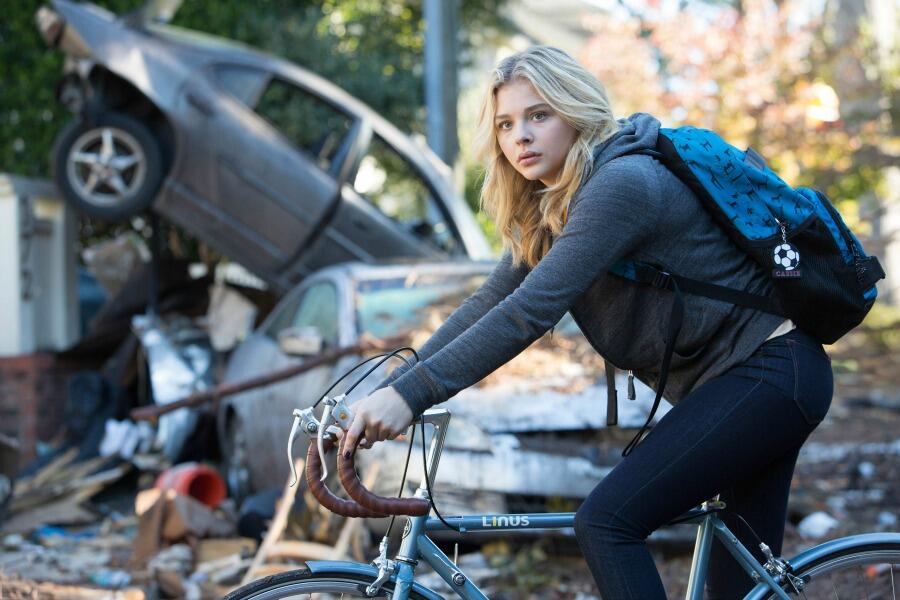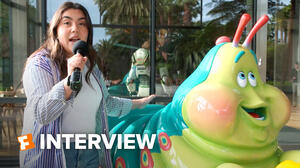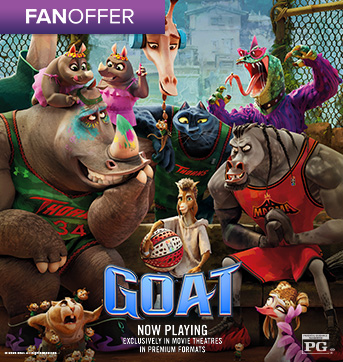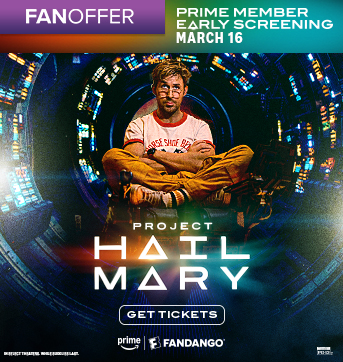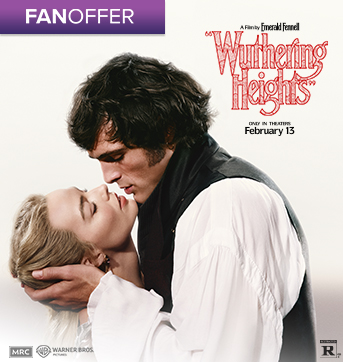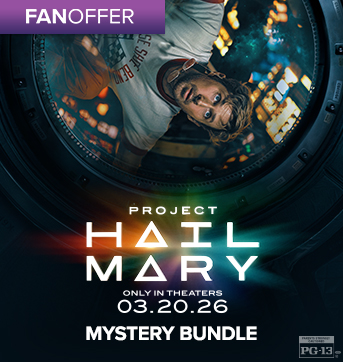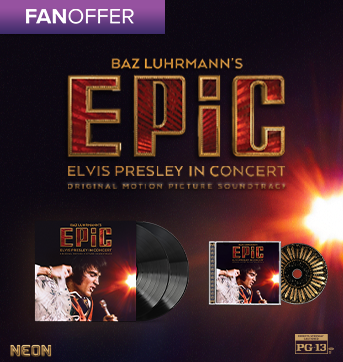
The 5th Wave is an apocalyptic YA action-romance. Yes, again. But unlike The Hunger Games, Divergent and The Maze Runner, The 5th Wave begins while Cassie (Chloe Grace Moretz) is still living a normal teenage life – her top concerns are slogging through class, her next soccer game, and getting the cute boy to notice her. This differentiation is the film’s strongest asset.
Cassie narrates, “When you’re in high school, everything seems like it’s the end of the world.” That’s turned on its head in 24 hours when aliens invade and she really is facing the end of the world. “The others” are on a mission to eliminate the human race and petty teen concerns are shown to be as trivial and inconsequential as they really are. The perception check is valuable to teen viewers.
On the other hand, my mommy senses were tingling during several moments in the film. Right from the get-go, Cassie says the words: “I’m a totally normal high school girl,” while the audience watches her pour beer into her red Solo cup at a party of a hundred high school students, also all holding red Solo cups. See kids? All normal high schoolers drink beer!
Once the alien invasion has begun, Cassie receives a text from her best friend suggesting she ask the cute boy if he’d like to engage in some “end-of-the-world sex.” Some point later in the film, it would seem Cassie does participate in that activity, although to be fair, the movie just shows the couple making out in the back of a truck and then, much later, waking up fully clothed. So, maybe I’m the one with the dirty mind. Maybe our teens won’t see it that way at all.
The violent elements, though, are the most concerning. Like The Hunger Games and Ender’s Game, The 5th Wave is about kids 8-17 being utilized as an army. Viewers do witness two of the young protagonists choosing to kill those they aren’t certain are the enemy. A bullet wound isn’t particularly graphic, but the blood that pours out of the wound over many scenes is stomach churning. I had to avert my eyes, blech!
My 14-year-old daughter covered her eyes at different parts: the romance. It’s not inappropriate (other than what I described above), it’s just kind of cheesy: think soft focus, meaningful looks, shirtless guy washing off in the river and chopping wood… you can almost hear the Air Supply. From what my kid told me, though, this pandering is the only thing she didn’t like.
So, maybe the filmmakers try too hard with the love story, but what is executed so subtly – so perfectly – is spurring young viewers to crack open their independent and critical thinking skills. As the film unfolds, the viewer feels uneasy about whether Cassie should trust the people she encounters and the information she’s receiving. The experience feels unique to the viewer – not like something the entire audience is piecing together – and it allows young viewers to identify clues to try and figure out what may or may not be really going on.
While our high schoolers may be able to empathize with Katniss Everdeen, Tris Prior or Thomas, these young heroes lives were never like our own. Cassie’s quick turn from carefree student to survivalist presents a different paradigm for teens: That could be me. What would I do?
